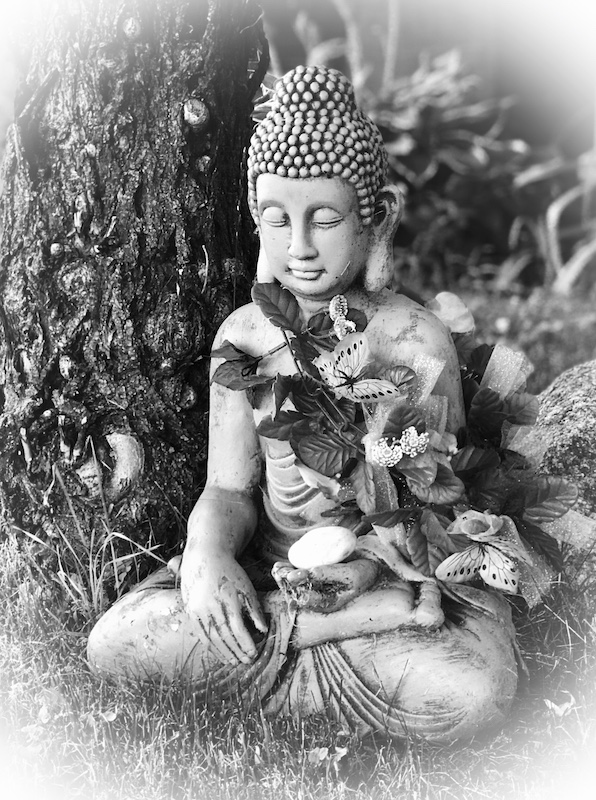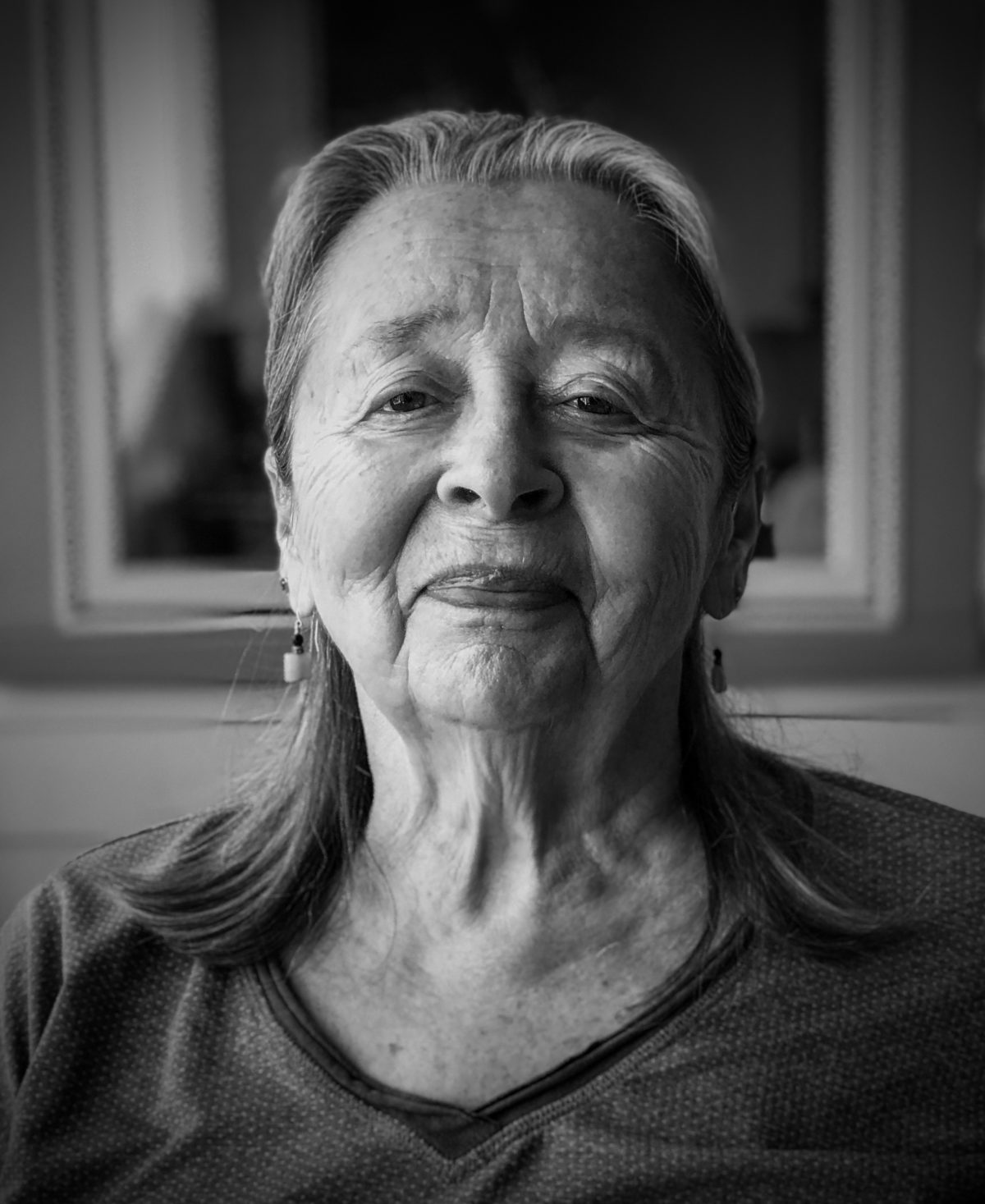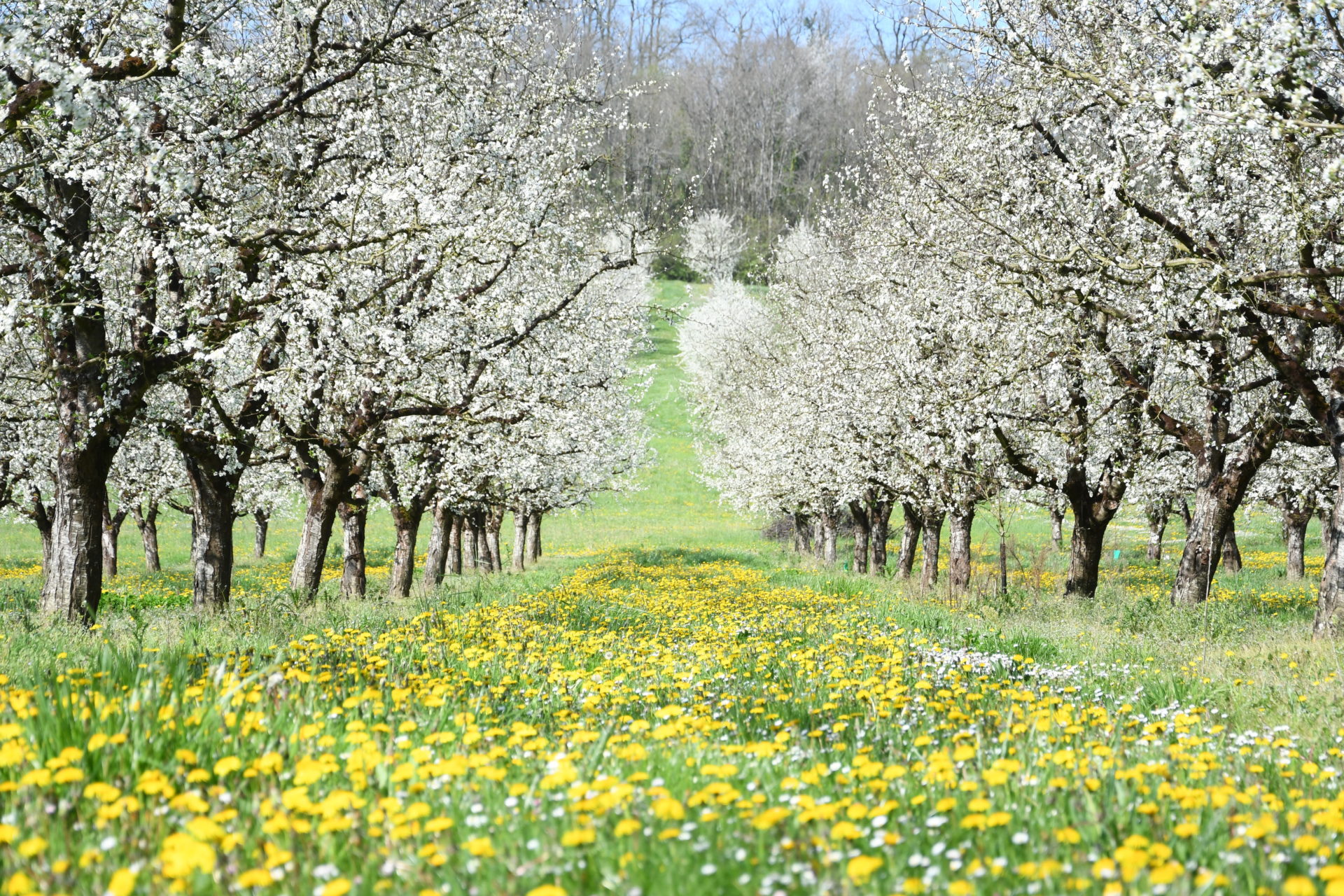By Susannah Ristine

In this time of challenge with the pandemic, I have been particularly and consciously engaged in the practice of mindfulness. Being in the present moment has helped me and my Sangha members loosen the knots of anxiety and stress so many of us carry in our bodies related to the pandemic. At the beginning of our Peaceful Harbor Sangha gatherings,
By Susannah Ristine

In this time of challenge with the pandemic, I have been particularly and consciously engaged in the practice of mindfulness. Being in the present moment has helped me and my Sangha members loosen the knots of anxiety and stress so many of us carry in our bodies related to the pandemic. At the beginning of our Peaceful Harbor Sangha gatherings, we have recently included the gatha, “Body, speech, and mind held in perfect oneness. We send our hearts along with the sound of the bell. May the hearers awaken from forgetfulness, and transcend all anxiety and sorrow.” This gatha reaches out to all beings, especially to those who are not practicing mindfulness for one reason or another.
The Earth Holder Community retreat titled “This Is It,” an eight-week online retreat on racial/social justice and ecological justice, began just before the pandemic struck in the United States. After the second week of the retreat, the space expanded to integrate the pandemic. Dharma sharing in the eight weeks of the retreat became the most significant experience of the retreat for me. Looking deeply and listening compassionately in Dharma sharing solidified my knowing that we are all one. Those of us at the retreat, and all beings beyond, are suffering in one way or another with the pandemic, with racial and social injustice, and with Earth injustice. The Dharma talk in the eighth week emphasized our need to rest, be grounded, and be held in order to go forward during and following the pandemic. In my Sangha and in the retreat, I have found that Dharma sharing provides resting, grounding, and being held.
During the pandemic, I have experienced restlessness in the center of my body, making it difficult to practice sitting meditation alone; however, it is somewhat easier for me to practice sitting meditation with my Sangha. Among the many mindfulness practices Thich Nhat Hanh teaches, the one I use most often is “Breathing in, breathing out; deep, slow; calm, ease; smile, release; present moment, wonderful moment.” This practice helps me relax into sitting meditation.
Walking meditation also relieves the restlessness and allows me to be in the present moment. It is especially supportive to practice walking meditation with my Sangha, even on Zoom, knowing that we are walking together. It has been most helpful to me to recite the gatha, “I have arrived, I am home; In the here, in the now; I am solid, I am free; In the ultimate, I dwell.” This gatha helps bring me into the moment during walking meditation and helped me as I paddled slowly in my kayak this past summer in Maine. After practicing walking meditation on Zoom since March, Peaceful Harbor Sangha created an outdoor walking meditation, wearing masks and maintaining social distancing, at a park on Casco Bay—a happiness practice we shared weekly until the snow fell.
Thay’s teachings provide many ways for me to maintain the practice of being happy in the here and the now. One simple practice that was reaffirmed in the “This Is It” retreat is: “Stop, calm, rest, heal.” This gatha brings me back to my true home, to the present moment. Sometimes, I alter this gatha slightly to “Stop, calm, relax, heal” because Thay says that it is not possible to heal unless you are relaxed. Not only does this brief practice promote ease, but it also contributes to my awareness of the need for healing our racial trauma as white, black, indigenous, and people of color (BIPOC), and for healing the Earth.
I have found continuing benefit from my take-aways from the “This Is It” retreat:
- I have a lot to learn, mostly about white privilege.
- I have to learn with other white women, not with BIPOC friends, for this is our learning, not theirs, and not with white men, for whiteness and patriarchy are both political structures and white male privilege can be distracting.
- Self-care is important, for the learning is uncomfort-able and hard.
- I need to follow Sister True Vow’s formula: awareness, intention, action.
Since the retreat, I have been inspired to read many articles and books on racial oppression and racial inequality, and on the complex individual and systemic ways to eliminate oppression and inequality.
One of the joyful gifts from the pandemic is the increased connection with my daughter, Betsy, on FaceTime. At first Betsy rejected my suggestion of switching from phone to FaceTime and said, “Oh no, Mom, I’d have to comb my hair.” After realizing she would not be flying east for her usual visit from Portland, Oregon, to Portland, Maine, in June, we agreed to change our weekly calls to the dreaded FaceTime.
Since then, we have both been reading books such as White Fragility, Love Letter to the Earth, How to Be an Antiracist, and Me and White Supremacy. On our weekly FaceTime calls, we contemplate and discuss understanding and healing our white supremacy, learning ways to eliminate racial inequality, coping with the pandemic, and healing the Earth. For me these kinds of conversations need to be face to face. Betsy is also part of a Me and White Supremacy circle. This has encouraged me to follow her lead to form a circle in my area. After spending our usual hour and a half on FaceTime together last week, Betsy texted me, “Did my soul a world of good to spend time with you this morning.” What a special gift to be with my daughter, see her lovely face, and at the same time, grow together!
Talking with Betsy and close friends, I have uncovered my unconscious support of white privilege. When faced with the opportunity or need to talk with a BIPOC friend about racial issues, I have discovered that I freeze and don’t speak up for fear of saying the wrong thing or for fear of getting overwhelmed. In Me and White Supremacy, Layla F. Saad quotes Dr. Martin Luther King, Jr.: “We will have to repent in this generation not merely for the hateful words and actions of the bad people but for the appalling silence of the good people.” I feel ashamed of my silence, and this shame is motivating me to learn and change.
I hope that looking deeply and speaking lovingly with Betsy, with close white women friends, and with a Me and White Supremacy circle will assist me in expressing myself more openly and mindfully. For example, I would like to talk honestly about racial inequity and racial oppression with several friends who are people of color without putting them unwillingly in the position of teaching me. When I meet with a friend who is a person of color, whether it is on Zoom, FaceTime, or in person with social distancing, I practice the gatha “Breathing in, breathing out; deep, slow; calm, ease; smile, release; present moment, wonderful moment.” This not only helps me to relax, but also helps me to let go of my worries and fears of saying the wrong thing.
From the “This Is It” retreat and other sources, I have gleaned the recommendation that we proceed first with facilitating change in racial and social inequities and then with healing the Earth. Unfortunately, we are now forced to heal the pandemic. Consequently, we must attend to healing racial and social inequities concurrently as we focus on containing the pandemic. Hopefully, this will help address the inequality of a greater number of COVID-19 cases and deaths among BIPOC, and with the excess suffering of BIPOC from calamitous Earth events. And, of course, we will continue to educate people, listen deeply to those whose view are different from our own, and do all we can to take the best care of the Earth.
A more peaceful and loving world will be found in understanding that we are all in this together, especially in times of stress such as the current pandemic. In the final chapter of his book Together We Are One, Thay says that we cannot accomplish much by doing it alone. The pandemic is a teacher; the peoples of our nation and the world can learn much about interbeing from cooperation to contain the pandemic.

Susannah Ristine, True Manifestation of Diligence, was ordained into the Order of Interbeing in 2017. She is a retired psychologist and a loving and understanding wife, mother, and grandmother. She practices with Peaceful Harbor Sangha in Portland, Maine, US.

